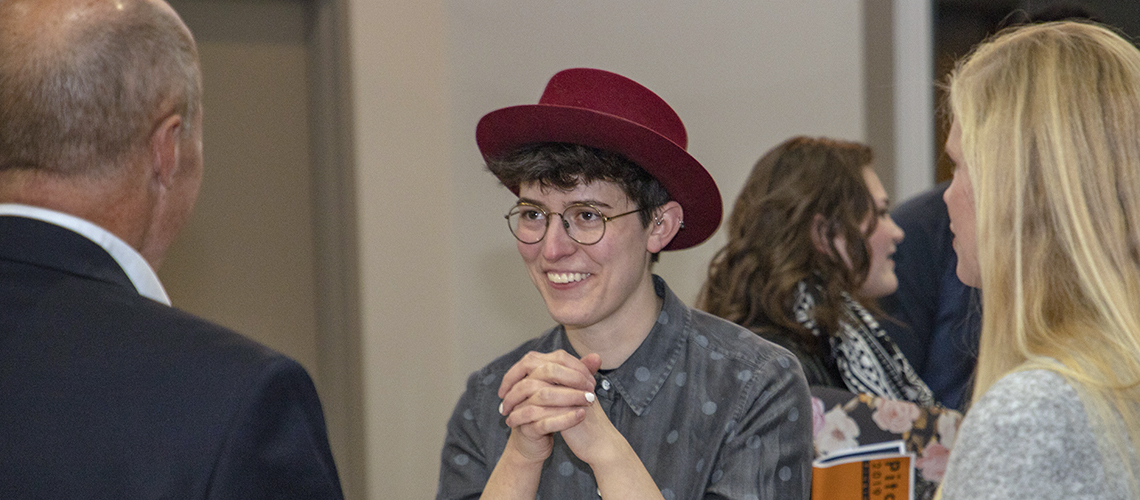
Wyoming Business Council: Let’s start with some of your background. Where did you grow up?
Amber Pollock: I was born and raised in Casper. My parents and grandparents live here. I left for about a year to pursue a degree in mechanical engineering in St. Louis, but I decided that wasn’t for me. I transferred to the University of Wyoming and earned bachelor’s and master’s degrees in music education. I taught elementary music in Natrona County for three years.
WBC: And teaching led you to the liquor industry, of course.
AP: Well, something like that. (Laughs.) My family wanted something of our own to grow and do together. My mom, especially, wanted more independence for her kids, so that idea was kind of in the back of our heads, but we weren’t actively working on coming up with an idea. The distillery idea came up in casual conversation about my brother’s interest in distilled spirits. We were all foodies, and we love cocktails and craft brews, and it just kind of clicked that this would be something we could all do together.
WBC: So, did you start small at first?
AP: Well, it’s not legal to distill liquor in homes, like it is to brew beer. So, we really had to just jump in. We decided to go for it in October 2012, and by that January, we had incorporated and gotten our building. And we still had no idea how to distill. We had to learn everything from the very beginning. But as they say, we didn’t know what we didn’t know, so we just jumped in and made things happen.
WBC: And everything went perfectly smooth, I’m sure?
AP: Not exactly. It became evident early on there was going to be more to all this than just running the business. This industry is relatively new to the state of Wyoming, and there were, and still are, a lot of hurdles to overcome in terms of regulation, legislation, consumer awareness, etc. We had this brand-new business that wasn’t yet prepared to handle any kind of blow to the industry, and there were things happening around the state that could have delivered that blow. There was a lot to consider beyond just the four walls of our business, and that’s really what led me to getting involved. A lot of what I do is lay the framework to make this an industry that can thrive in Wyoming.
WBC: How have you gotten involved?
AP: I started getting involved in local and state economic development. As a business owner, I think it’s important not to just react to the things happening around you, but instead try to find a seat at the table where those early decisions that could impact you are being made. Economic development has the potential to be a great strengthening force in Wyoming, but without real thoughtful attention given, it can skew an industry and have negative consequences. It’s really important that people who are on the ground trying to make it work are the ones informing those decisions. So, I got involved with the Casper Area Economic Development Association and then as a member of the ENDOW and ENGAGE councils.
WBC: Let’s talk about ENGAGE. What is it? What is the group up to these days?
AP: ENGAGE is for 18- to 35-year-olds with an interest in seeing Wyoming thrive. Some still live in Wyoming, but some have left to build careers they felt they couldn’t pursue here. I’m excited about ENGAGE’s work. It’s a passionate and dedicated group, and we’re getting a lot of foundational work done right now, building up to taking more direct action that will make an impact here. We’re really trying to empower ENGAGE-age folks to fill vacancies on state boards and committees. Because, again, it’s important to have representation and a seat at the table to make sure our perspective is taken into consideration. After all, the work ENDOW did was a 20-year vision, and this age group will be the people putting those plans into action. With the Legislative session coming up, we’re working on ways to get people more involved in the lawmaking process. There are a million reasons why ENGAGE-age people should be familiar and involved with that process.
WBC: You recently participated in the Casper Startup Challenge, right? How was that?
AP: It was a valuable experience. I learned a lot and I’m looking forward to continuing to work with the folks at the Wyoming Technology Business Center. There were more entrants than ever this year, which is a great sign that a culture of entrepreneurship is growing in Casper. It is helpful to collaborate, and I’m excited to continue doing so as we work on our new project.
WBC: There has been some great economic energy in Casper lately, especially downtown as quite a few new businesses have opened and the David Street Station is bringing more people out. Are you feeling that energy?
AP: Yes, for sure! I have lived here my entire life and I have felt a surge of energy in Casper over the last several years. So many cool projects have been completed, with more on the way. It’s a very exciting time. I think using public investment as a catalyst for private investment should be the goal of any public investment. That’s where those dollars really start to make a meaningful impact; when they encourage add-on dollars from the private sector. And the David Street Station has been a true catalyst for development in Casper. It has inspired more projects and informed a vision for Casper that’s really exciting.
WBC: What is the biggest hurdle you see Wyoming facing right now?
AP: If we’re going to be competitive and attract people and investment – either from within Wyoming or from other states – we need to embrace the changes that are required to make that happen. Resisting change and continuing to hope that the way we have always done things will continue to be relevant and successful will put Wyoming behind. People want to be here, in the mountains and fresh air, but we need to make sure there are opportunities here for them, as well.
WBC: What advice would you offer other business owners in the state?
AP: If you can, get involved on some sort of community or state-level decision-making processes. Setting Wyoming up for future success will take diverse expertise, experience and thoughtful leadership. Business owners are in the trenches of Wyoming’s economy and understand what is working and what isn’t; and they likely have ideas for what Wyoming can do to position ourselves for the future. Ensuring good representation at the decision-making tables will be paramount to our success.

214 West 15th St.
Cheyenne, WY 82002
This facility is a gun-free zone per W.S. 6-8-101 et seq. statute.
© 2024 Wyoming Business Council